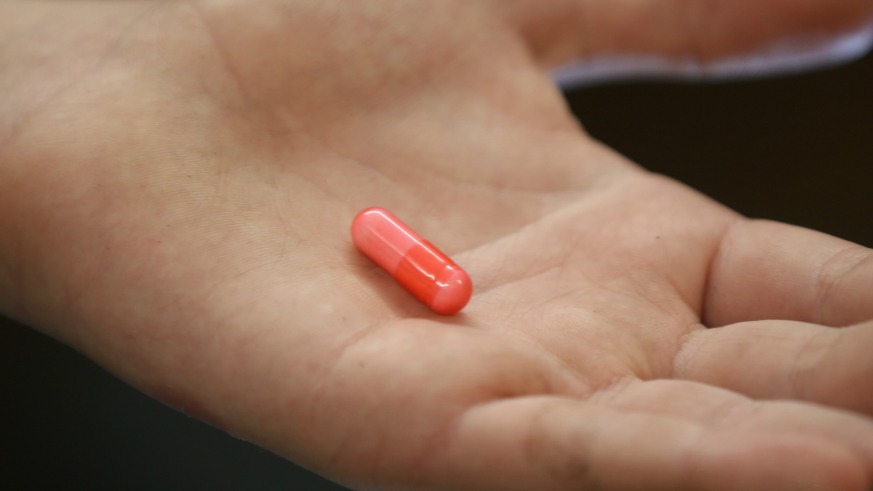Those of you who love-just-love to exercise, feel that it makes you truly feel alive, etc. — you’re great; keep it up. For the rest of us, there may soon be a pill to render unnecessary the most painful life experience besides childbirth and Chainsmokers concerts: Going to the gym.
That’s right — scientists are now testing a pill that would simulate the effects of exercise on the body. Here’s how it theoretically work: The pill would suppress the body’s levels of a protein called myostatin. Unlike most protein, which increases lean muscle mass, myostatin actually works against the building of muscle. Researchers found that obese people have higher levels of myostatin in their system, while people with more muscle mass have less myostatin.
Retaining more muscle mass would make exercising feel less strenuous for people who had high levels of myostatin before taking the pill. That would make moving, logging more steps a day, hitting the gym and, ultimately, losing weight easier and more comfortable. More muscle mass also means a higher metabolism, since a pound of muscle burns more calories at rest than a pound of fat; the pill, therefore, could potentially help give sluggish metabolisms a boost, helping to light that calorie-burning furnace that fuels weight loss.
RELATED: 6 Dance classes that make exercise fun again
“Ultimately, the goal of our research would be to create a pill that mimics the effect of exercise and protects against obesity,” says Joshua Butcher, Ph.D., the study’s lead author and postdoctoral fellow at the Vascular Biology Center at Augusta University, who presented his findings this week. “A pill that inhibits myostatin could also have applications for muscle wasting diseases, such as cancer, muscle dystrophy and AIDS.”
“While much more research is needed, at this point myostatin appears to be a very promising pathway for protection against obesity-derived cardiometabolic dysfunction,” Butcher added.
Myostatin was discovered in the 1990s by a Johns Hopkins researcher. (One of the animals originally studied was the Belgian blue bull, which look like they’re solid muscle because they produce little of the protein.) There are already various supplements on the market that claim to suppress myostatin, but they are definitely not ready for prime time: Their claims are unproven, and as with all supplements, their contents are not regulated by the Food & Drug Administration. For now, get back on the treadmill.
But if you have a friend you’ve been trying to extract from the cult of CrossFit, take heart — you may coax him back into normal society yet.



















